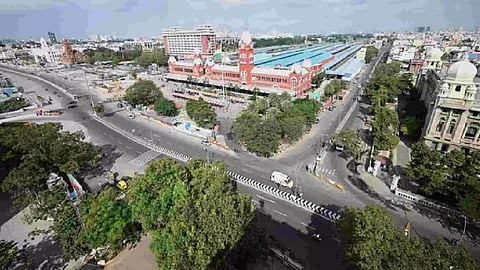

CHENNAI: The ongoing growth story of Chennai has helped experts create a new way of understanding how ‘urban sprawl’ happens around the world, offering the potential to use it as a blueprint to improve people’s lives across the Global South through better urban planning.
An international group of researchers, including UK academics, published their findings in Habitat International this week after examining the rise of regions within St Thomas Mount panchayat union.
They analysed the development of communities on the edge of the city, where urban and rural areas meet to develop an approach that is tailored to the needs of India and other countries in the Global South.
“With the rapid pace of urbanisation, urban sprawl has become a prevalent phenomenon in the Global South. This has created peri-urban spaces where city meets country – offering interactions between social, economic, and environmental systems that give valuable insight into how we can create better and more sustainable futures for the people living in these communities,” said Rahib Akhtar, co-author of the study from the University of Birmingham.
Researchers highlight a process that redefines the dynamics of peri-urban areas using causal loop diagrams to map the connections between health, place, demographics, governance, and economy. They identified a number of elements which make up this so-called ‘peri-urban turn’ and take note of the ambiguity surrounding the demarcation of urban and rural areas, which creates challenges in understanding trends and patterns.
Besides the University of Birmingham, the participating institutions in the study include University College London, Rabdan Academy (UAE), University of British Columbia (Canada), Ardhi University (Dar es Salaam), and Hindustan Institute of Technology and Science (Chennai).